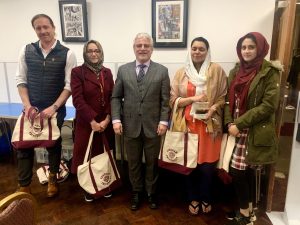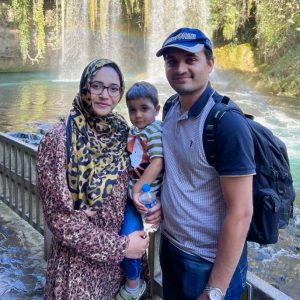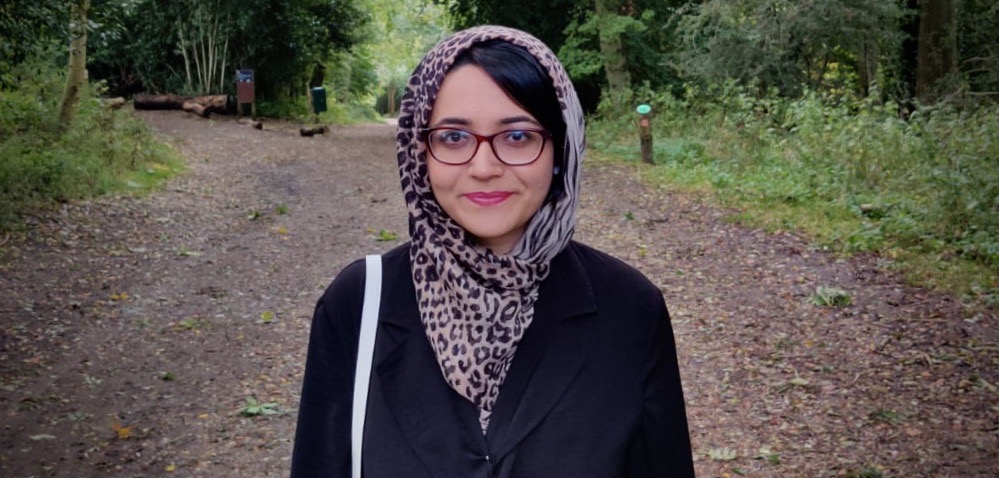“Rather than just reading and learning from theory, I want to practice it,” said Ahmed, 27, who will earn her master’s degree from the School of Professional and Continuing Studies this May.
Enabling Telemedicine with Free Software for Developing Countries
Ahmed was born and raised in Karachi, the largest city in Pakistan. In 2014, she moved to the United Kingdom. She earned her bachelor’s degree in nutrition and health from the University of Roehampton. Initially, she wanted to pursue her master’s degree in dietetics and become a dietician. But when her son was born, it became difficult for her to pursue her original goal.

Instead, she entered the inaugural cohort of Fordham’s master’s program in applied health informatics. The program, which welcomed its first class in 2022, teaches students how to create cost-effective information systems for hospitals and health care providers.
“What we teach in the program is how to make effectively free software for health records. Without these electronic health records, it’s very difficult to do telemedicine, which can significantly help to deliver health care in developing countries,” said the program’s director, John Chelsom, Ph.D.
Helping an African Orphanage with Electronic Records
For Ahmed’s capstone project, Chelsom connected her with international relief organization Humanity First, which put her in touch with an African orphanage that wanted to convert its health records from paper into electronic files.
“An electronic health record is an online record of a patient’s personal information and medical history data that can be updated over their lifetime. Whenever a child enters the orphanage or is adopted, they need to fill out forms and submit them to the government. The orphanage wanted to make those forms electronic so they’re more safe, secure, and easily shareable, and all the data is in one place,” Ahmed said. “To actually install the program on their computers, we [Chelsom and I] will need to visit the orphanage … and I’m planning to continue working with them after graduation.”
Balancing School with Motherhood, Thanks to an Online Program

At Fordham, Ahmed developed her information and technology, artificial intelligence, and programming skills. Although she never had a permanent physical campus, she participated in two Fordham-hosted residential workshops at St. Edmund Hall, the oldest residence at the University of Oxford, where she met some of her American classmates in person for the first time, as well as other professionals from around the world. And thanks to her online coursework, she was able to care for her family while pursuing her education.
“I did my household chores in the morning, put my baby to sleep in the afternoon, and attended lectures from 2 to 5 p.m. Sometimes my son woke up in the middle, but it was possible for me to continue my studies because I was at home, where it’s easier for me to manage him,” said Ahmed, who lives in London with her husband, their 2-year-old son, and her mother-in-law. “For people like me who have children or dependents to look after, studying or working online is a great opportunity.”
This spring, she will travel to Fordham’s main campus for the first time with her family for Commencement. She plans to use her new degree in a field related to data management, where she hopes to make a difference.
“I want to create something that will help people in the real world,” Ahmed said.

